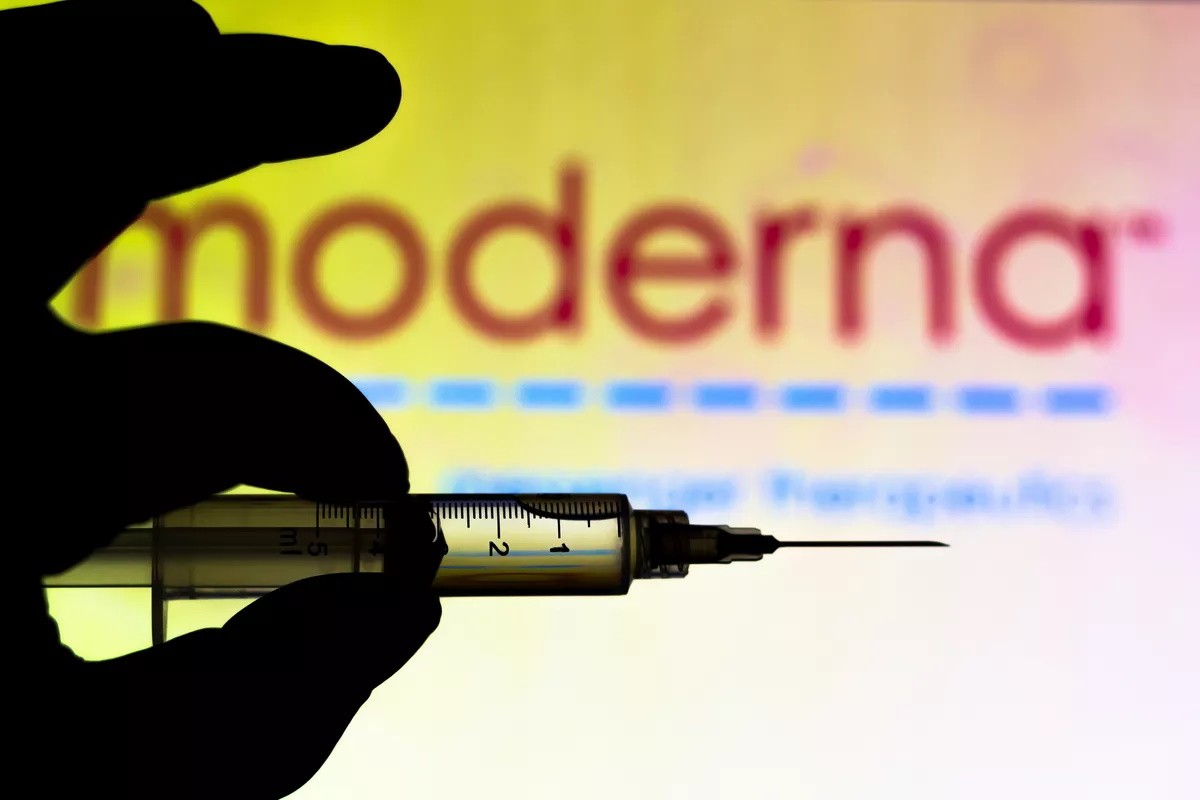Moderna files for U.S. vaccine authorization, will seek EU nod

Moderna Inc said on Monday it has applied for U.S. emergency authorization for its COVID-19 vaccine after full results from a late-stage study showed it was 94.1% effective with no serious safety concerns.
The U.S. Food and Drug Administration said an advisory committee would meet to discuss the request on Dec. 17, making Moderna’s candidate the second highly effective vaccine likely to receive U.S. regulatory backing and a potential roll out this year.
A shot developed by Pfizer Inc and BioNTech SE that was 95% effective in its pivotal trial is set to be reviewed by a panel of outside experts a week earlier. The FDA will decide on the emergency use authorizations (EUA)after the advisers make their recommendations.
Moderna, which also plans to seek European approval, reported that its vaccine’s efficacy was consistent across age, race, ethnicity and gender demographics as well as having 100% success in preventing severe cases of the disease that has killed nearly 1.5 million people worldwide.
“We believe that we have a vaccine that is very highly efficacious. We now have the data to prove it,” Moderna Chief Medical Officer Tal Zaks said. “We expect to be playing a major part in turning around this pandemic.”
Of the 196 people who contracted COVID-19 out of over 30,000 trial volunteers, 185 had received a placebo and 11 the vaccine. Moderna reported 30 severe cases, all in the placebo group.
Moderna shares rose 3% in extended trading after closing up 20%. They have gained about 700% this year.
“As the numbers of cases reported grows, confidence grows that this amazing protection will be maintained in a product that can be rolled out to protect the public,” said Alexander Edwards, associate professor in biomedical technology at Britain’s University of Reading.
In addition to filing its U.S. application, Moderna said it would seek conditional approval from the European Medicines Agency and continue to talk with other regulators doing similar rolling reviews.
“Although we await the full details of these results in published form, we can now assume that this vaccine will be approved for use in December,” said Gillies O’Bryan-Tear, chair of policy and communications at Britain’s Faculty of Pharmaceutical Medicine.
He expected Britain’s Medicines and Healthcare products Regulatory Agency to approve the vaccine within two weeks.
‘JUST OVERWHELMING’
Moderna said it was on track to have about 20 million doses of its vaccine ready to ship in the United States by the end of 2020, enough to inoculate 10 million people.
Switzerland’s Lonza Group , which has a contract with Moderna to supply ingredients for the vaccine, rose 4.4%.
The vaccines developed by Moderna and Pfizer/BioNTech use a new technology called synthetic messenger RNA (mRNA) whereas others, such as AstraZeneca’s , employ more traditional methods.
AstraZeneca has announced an average efficacy rate of 70% for its vaccine, and as much as 90% for a subgroup of trial participants who got a half dose, followed by a full dose. Some scientists have expressed doubts about the robustness of the 90% efficacy figure for the smaller group.
Moderna’s final efficacy result was slightly lower than an interim analysis released on Nov. 16 of 94.5% effectiveness, a difference Zaks said was not statistically significant.
FILE PHOTO: Vials with a sticker reading, “COVID-19 / Coronavirus vaccine / Injection only” and a medical syringe are seen in front of a displayed Moderna logo in this illustration taken October 31, 2020. REUTERS/Dado Ruvic/Illustration/File Photo
“At this level of effectiveness, when you just do the math of what it means for the pandemic that’s raging around us, it’s just overwhelming,” said Zaks, who said he cried when he saw the final results over the weekend.
Both the Moderna and Pfizer vaccines proved more effective than anticipated and far superior to the 50% approvable benchmark set by FDA.
The past few weeks of positive vaccine results have ignited hopes for an end to a pandemic that has battered economies and come as new infections and COVID-19 hospitalizations are at record levels across the United States.
Almost immediately after receiving an EUA, Moderna expects its vaccine to be shipped to distribution points across the United States by the government’s Operation Warp Speed program and drug distributor McKesson Corp.
Distribution is expected to be less complicated than for Pfizer’s vaccine. While it needs to be stored in a freezer, it does not require the ultra-cold temperature or specialized equipment needed for Pfizer’s vaccine.
CONSISTENT ACROSS AGE AND ETHNICITY
Moderna said the 196 COVID-19 cases in its trial included 33 adults over 65 years old and 42 volunteers from racially diverse groups, including 29 Latinos, 6 Blacks, 4 Asian Americans and 3 multiracial participants. There was one death related to COVID-19 in the placebo group during the trial.
“This is as black and white as an effect on a population will be. Your chances of actually being sick if you’ve been vaccinated are decreased 20-fold,” said Moderna’s Zaks.
Moderna reported no new side effects since its interim analysis, the most common of which were fatigue, injection site redness and pain, headache and body aches, which rose after the second dose and were short-lived.
Zaks said the vaccine caused significant flu-like symptoms in some participants which, “goes hand-in-hand with having such a potent vaccine.” But it has not caused any significant safety concerns so far, he said.
Moderna plans to start a new trial to test the vaccine in adolescents before the end of the year, followed by another in even younger volunteers early in 2021. It hopes to have the vaccine available for adolescents by September, Zaks said.
Other vaccine makers have said they are studying their vaccines in younger people as well.



